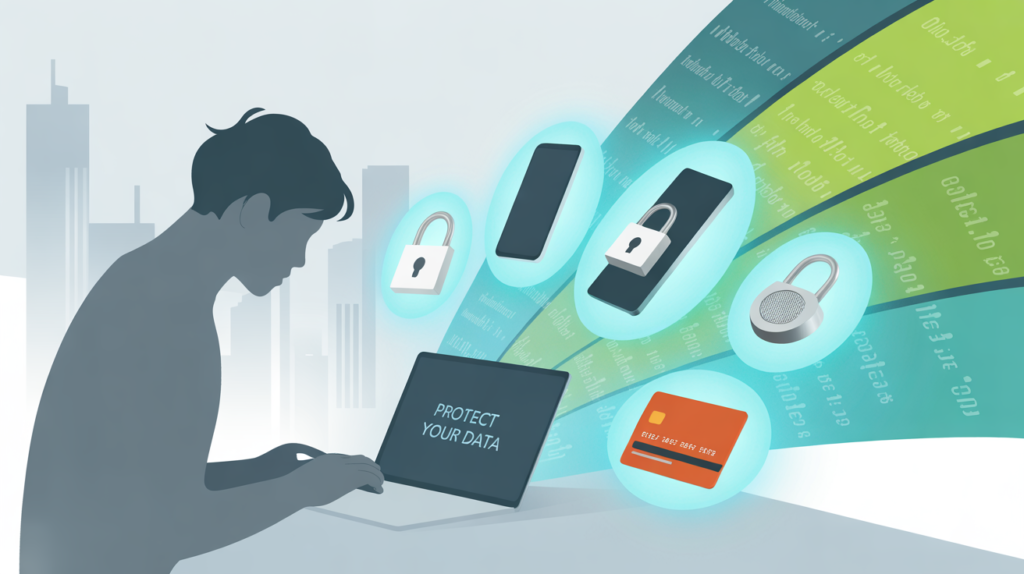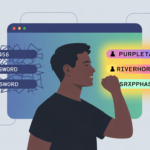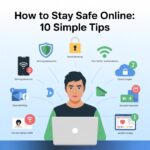Introduction: The Hidden Threat in Your Pocket
Think about your typical morning. You wake up, check your phone, scroll through emails, maybe pay a bill online. All before breakfast. What many of us don’t realize is that CyberSecurity in everyday life isn’t just about protecting government secrets or corporate data it’s about guarding our own digital footprints. Every login, every online purchase, and every smart device connection carries both convenience and risk. And in today’s world, where everything from banking to dating happens online, CyberSecurity in everyday life is the invisible shield that keeps our digital routines safe.
Why CyberSecurity Is No Longer Optional
According to a 2024 IBM Security Report, the average cost of a data breach has reached over $4.5 million. While that number applies to organizations, individuals feel the ripple effects: stolen credit cards, hacked accounts, drained savings, or even identity theft.
What’s more alarming? The Verizon Data Breach Investigations Report found that 82% of breaches involved a human element like weak passwords or clicking on phishing links. That means everyday habits directly shape how secure or exposed we are.
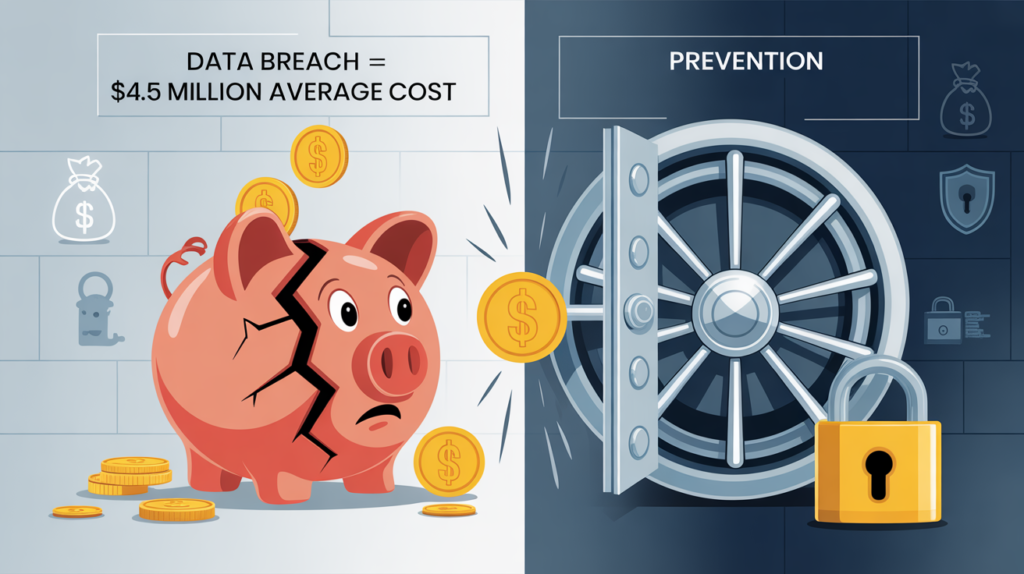
Everyday Scenarios Where CyberSecurity Matters
1. Online Banking and Shopping
We swipe, tap, and enter our card details daily. Yet cybercriminals are constantly inventing new ways to steal payment info. From fake shopping websites to credit card skimming malware, simple transactions can be traps.
A strong cybersecurity habit here might be as simple as:
- Only shopping on secure, HTTPS websites
- Using virtual cards or mobile wallets with encryption
- Monitoring bank statements for unusual activity
2. Smart Devices at Home
Your smart speaker, thermostat, and even your fridge may be connected to the internet. But each connected device is also a potential gateway for hackers.
Imagine a stranger listening in through your baby monitor or hijacking your smart door lock. These aren’t science fiction scenarios they’ve been documented by cybersecurity researchers.
3. Work-From-Home Realities
Since the pandemic, remote work has blurred the lines between personal and professional data. A compromised home Wi-Fi network doesn’t just expose your Netflix account it can open the door to your employer’s confidential files.
That’s why more companies now require employees to use VPNs, multi factor authentication (MFA), and encrypted email. CyberSecurity in everyday life protects not just you but your livelihood.
4. Social Media Oversharing
We often share birthdays, travel plans, or even our pet’s name online. But these “innocent” details are exactly what hackers exploit for security questions or phishing attacks.
That Facebook post about your dog Max? It could be the missing puzzle piece for someone trying to guess your bank password reset question.
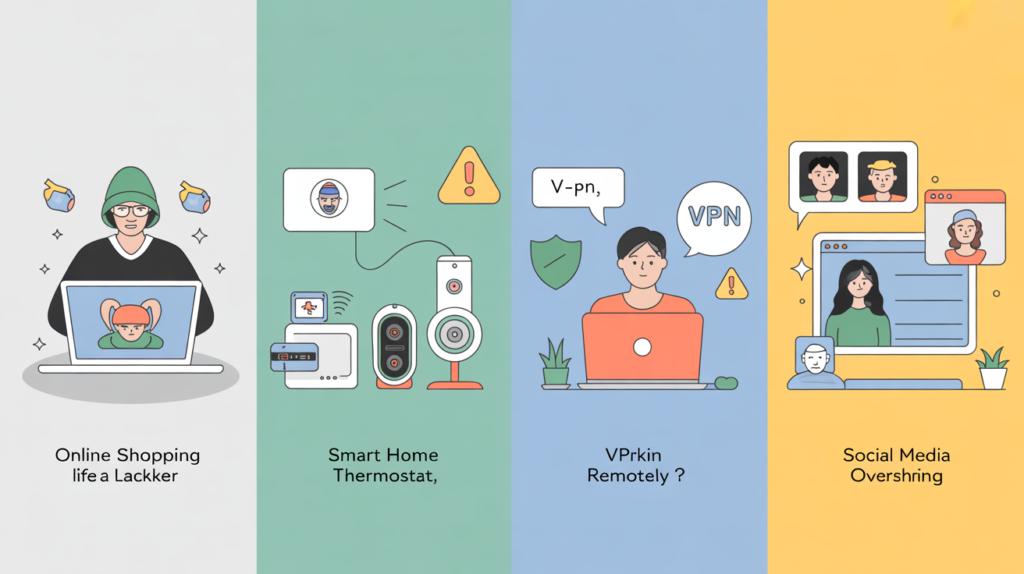
The Cost of Ignoring CyberSecurity
Here’s a snapshot comparing the convenience of poor habits with their potential consequences:
| Everyday Action | Risk If Ignored | Real-World Impact |
|---|---|---|
| Using “123456” as password | Easy to crack | Bank account drained |
| Public Wi-Fi browsing | Data interception | Identity theft |
| Clicking unknown email links | Malware infection | Locked out of personal files (ransomware) |
| Skipping software updates | Exploited vulnerabilities | Compromised devices |
| Oversharing on social media | Social engineering attacks | Stolen accounts |
The table shows a hard truth: shortcuts today often lead to disasters tomorrow.
Personal Reflection: A Wake-Up Call
I once fell for a phishing email that looked exactly like a PayPal alert. Without thinking, I clicked and entered my login details. Within minutes, my account had suspicious charges.
It was a gut punch but also a turning point. I started using a password manager, enabled two-factor authentication, and stopped clicking links without double checking the sender. That one mistake reshaped my entire digital hygiene.
And that’s the essence of cybersecurity in everyday life: it often takes one painful lesson to realize how fragile our digital safety is.
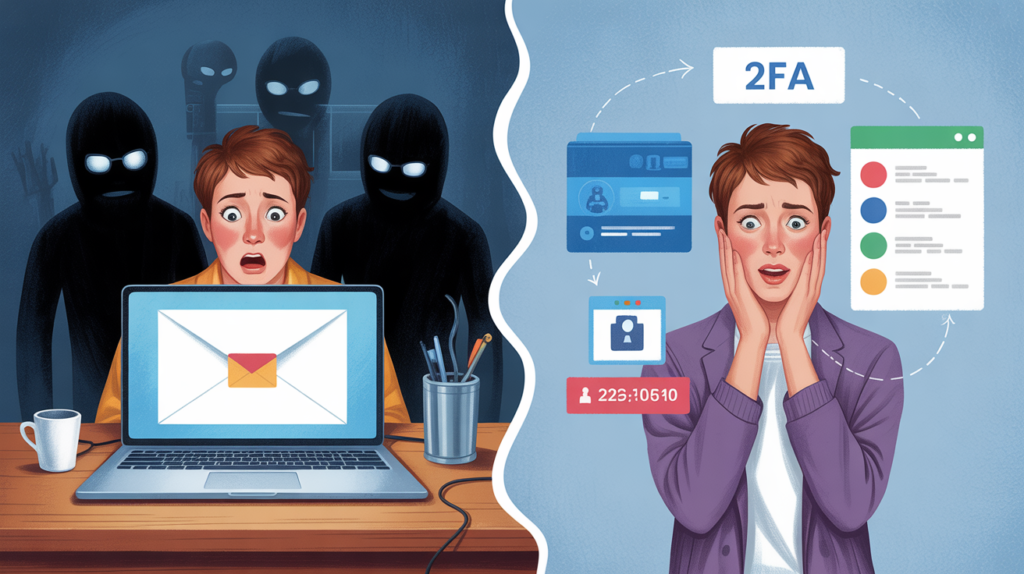
The Psychological Side of CyberSecurity
It’s not just about money or data it’s about peace of mind. Studies show that victims of identity theft often experience stress, anxiety, and even depression. Imagine the emotional toll of knowing someone impersonated you to take loans or commit crimes.
Cybersecurity isn’t just technical armor. It’s mental armor. It ensures we can use technology with confidence, not fear.
Key Principles for Everyday CyberSecurity
1. Strong, Unique Passwords
We’ve all heard it but few practice it. Use a password manager to generate and store unique logins. No more “one password for everything” shortcuts.
2. Two-Factor Authentication (2FA)
This simple step blocks most unauthorized attempts. Even if your password is stolen, a hacker can’t log in without your phone or key.
3. Regular Software Updates
Updates aren’t just about new features. They patch security holes. Delaying them is like leaving your door unlocked.
4. Cautious Clicking
Phishing emails are getting scarily convincing. Always verify links and senders. When in doubt, go directly to the official website instead of clicking.
5. Secure Wi-Fi Habits
Change your router’s default password, use WPA3 encryption, and avoid logging into sensitive accounts over public Wi-Fi.
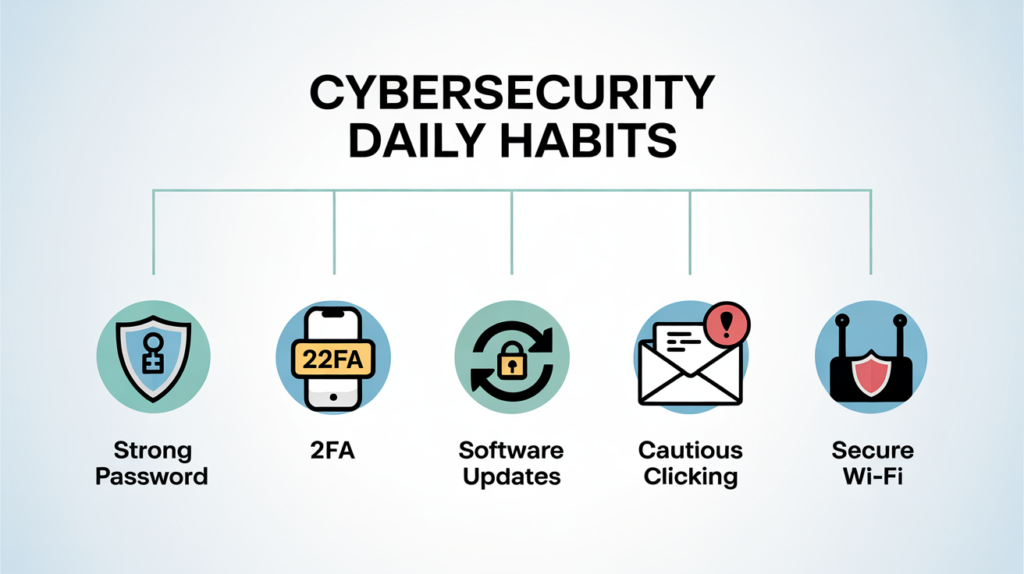
CyberSecurity in Everyday Life: A Shifting Mindset
For many, cybersecurity feels abstract something for IT departments or techies to worry about. But just like washing your hands protects you from illness, small digital hygiene habits protect you from cyber threats.
It’s about mindset: treating your data with the same care you treat your house keys or your wallet.
Future Outlook: Why Awareness Will Only Grow
With the rise of AI-driven cyberattacks, threats are becoming more personalized and harder to detect. Deepfake voice scams, for example, are already tricking people into transferring money because the caller sounds exactly like their boss or family member.
This means cybersecurity literacy will soon be as fundamental as financial literacy. Parents will teach kids not just how to ride a bike but how to recognize a phishing scam.
Conclusion: Making Security Part of Daily Life
CyberSecurity in everyday life isn’t about paranoia it’s about preparedness. It’s the invisible shield that allows us to bank online, connect with loved ones, and work remotely without fear.
To recap:
- Cyber threats are woven into daily activities, from shopping to social media
- Small habits like using strong passwords and enabling 2FA make a massive difference
- Ignoring cybersecurity has emotional, financial, and professional consequences
- Building awareness today prepares us for the threats of tomorrow
Call-to-Action: Take Your First Step Today
Don’t wait until you’re hacked to take cybersecurity seriously. Start small:
- Update one weak password right now
- Enable two-factor authentication on your most important account
- Talk to a family member about why cybersecurity matters
Your digital life is worth protecting. Make cybersecurity part of your daily routine—because in today’s connected world, safety is not a luxury, it’s a necessity.

